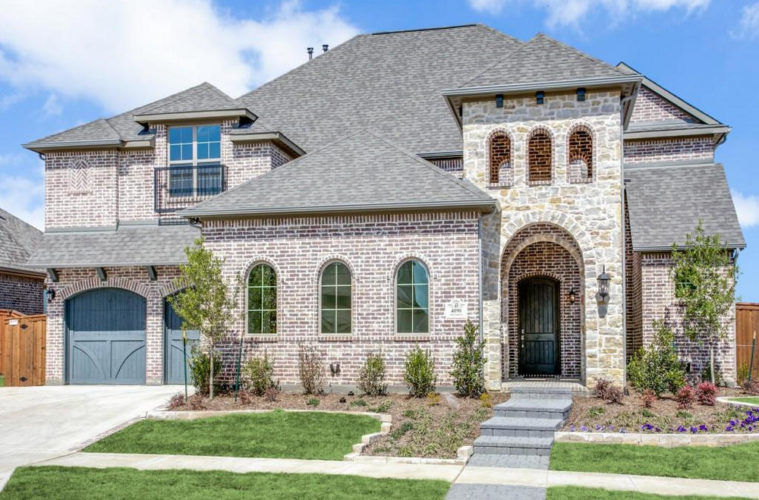Collin County is a great place to live. You can live close to your work, surrounded by nature, in a vibrant community, near exciting amenities, or any combination of these.
In Collin County almost every housing budget can be accommodated. Single-family homebuyers can choose eco-friendly designs, new homes in master-planned communities, luxury residences in gated enclaves or resale homes in established neighborhoods. You may want to consider leasing as well, and there are a range of condominiums, townhouses and lofts available.
HOME OWNERSHIP
There’s nothing like owning your own piece of property to help you feel connected to an area and your neighbors. Houston has plenty of choices: brand-new homes ranging from those for first-time to move-up buyers, townhouses and resale houses. All have their advantages.
The first consideration is location, location, location. Where do you want to live? What neighborhoods appeal to you? Do you want a new housing development with the latest amenities, or a settled community with established traditions? What about a yard? Walking or recreational opportunities? Proximity to shops and work? And the big one: schools? Even if you don’t have children, buying in an area with excellent schools will pay off when it comes time to sell.
Of course, the cost of home ownership doesn’t end with the sale price; maintenance and repairs will be required. One rule of thumb is to budget one percent of the sale price for maintenance; another is to set aside one dollar per square foot per year. There’s no hard-and-fast rule, but generally, upkeep costs will go up as the age of the home increases. Most new homes have warranties that cover problems for the first few years. And home warranty policies can be purchased for re-sale homes. In addition, make sure you understand any deed restrictions or homeowner’s association regulations that might be in effect, along with any corresponding dues or assessments. Taxes vary by county, school district and Municipal Utility District (MUD). The good news is that mortgage interest and property taxes can be deducted from your federal income tax.
The best place to start is with a professional REALTOR®, who will be able to guide you and your family to the right area and choice.
PRE-OWNED HOMES
Very often, pre-owned homes are situated in established neighborhoods, allowing prospective buyers to talk to a couple of neighbors and get a feel for the block. Watch for great locations on golf courses, near parks, lakes or shops. Is the nearby school a good one? Is there a homeowner’s association, deed restrictions or zoning laws? Remember, you can change the house, but you can’t move it. You will also want to consider your commute. How far is it to work? How does that cost in time and money compare to the cost of the house?
Pre-owned homes are as different in style and character as their previous owners were, and often this adds wonderful appeal and opportunity. Some homes are ready to move in; some need a little work; others need transformations. Before you purchase a pre-owned home, hire a licensed inspector to analyze the house, inside and out. Inspections will identify structural and hard to- spot problems that need to be addressed. If repairs are needed, be sure to get several estimates for the entire project. Even if the house is sound, you may want to do a little or a lot of remodeling. From painting walls to removing them, you may need to hire the services of a remodeling company to realize your dream. Use the chambers of commerce in the guide and the Better Business Bureau for possible sources of information on home repair companies and referrals.
NEW HOMES
If building from the ground up appeals to you, the many outstanding homebuilders in Houston can help. There are many choices for home sites – in new and established subdivisions, on the waterfront, on a golf course, even with a pastoral or forested setting on acreage. A realtor can quickly narrow down your site-selection process by matching the best locations to your needs; she can also work with you to find a builder. Some specialize in green building and energy efficiency or may have advanced training from the National Association of Home Builders (NAHB). Be sure to tour model homes to evaluate the designs, features, and workmanship of each builder. The architectural styles, floor plans, interior finishes, appliance choices and other options vary, and it’s important to begin honing your tastes and preferences. Designers can help with selecting packages and upgrades to complete a home beautifully as well as on time and on budget. Production houses can usually be finished in 90 to 120 days, and most builders have homes in varying stages of completion and can accommodate newcomers who need to move in quickly.
You may be dreaming about a custom home. While building one takes time and planning, the effort and wait are often worth it. Some customs homes are one-of-a-kind, created using original plans from the ground up. In other cases, builders work with buyers to customize rooms, adjust square footage, add details or energy-saving features. Whatever your dream, it’s never too early talk to a builder. You will also want to view homes already built by the company and, if possible, speak to homeowners about their experience with the builder and the process. Be sure to interview two or more builders before signing a contract. Ask builders how long they’ve been in business, how many homes they’ve completed and if they have any references.
Once you’ve chosen the builder, review the contract carefully. You should understand if the final price is guaranteed, what the move-in date is and how upgrades or change orders are handled. Attorneys who specialize in construction are available to review contracts and their fee may save you money in the long run, helping you to avoid misunderstandings and frustration.

